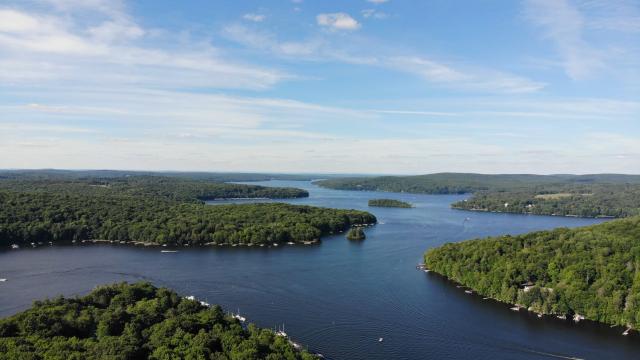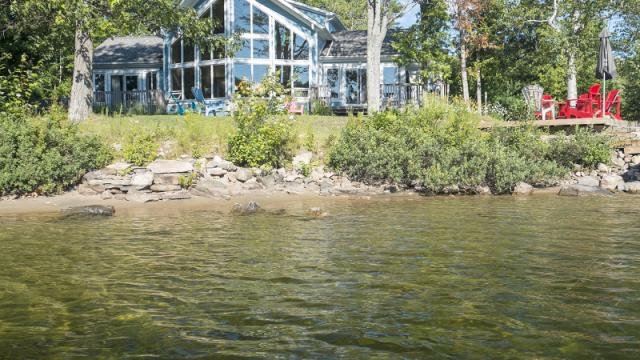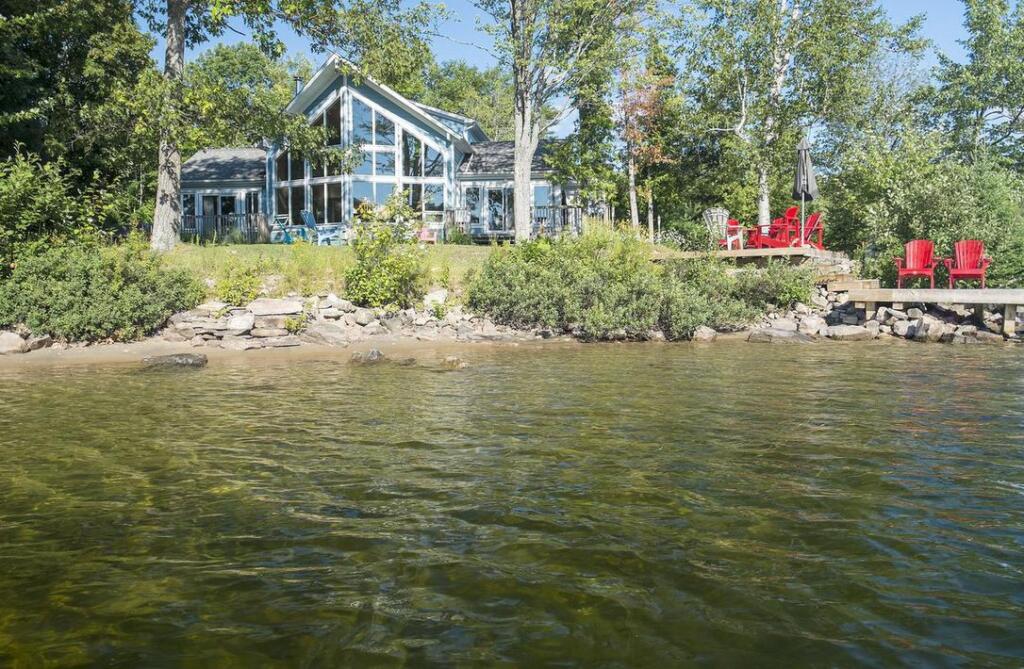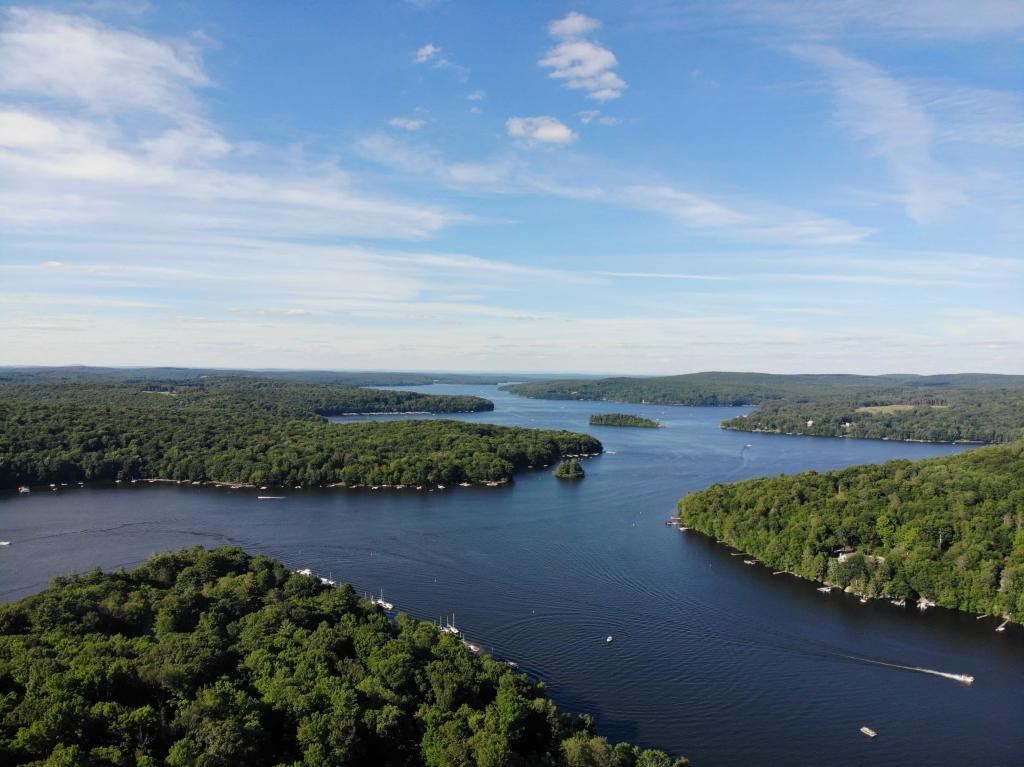
April 2, 2024 – Hoover, Ala. – Great news for potential lake home or lot buyers! This spring offers a wider selection of properties. According to the Spring 2024 Lake Real Estate Market Report by Lake Homes Realty, there are currently 83,467 lake home and lot listings available. This represents an increase of 13,366 from the 70,101 listings seen in Spring 2023.
That’s not all – the total market value of these listings sits at $44,111,017,837, demonstrating an improving market with investment potential. This is a positive shift compared to the $33.74 billion and $26.13 billion reported in Spring 2023 and 2022 respectively. With more options and a growing market, this spring presents an excellent opportunity to find your dream lakefront property.
Top Lake Real Estate Markets Nationwide
Boasting the most extensive selection of properties this spring is Lake Michigan. This lake has a total value of $1.46 billion across lakefront, lake view, and lake access properties in Illinois and Michigan, according to the Spring 2024 Lake Real Estate Market Report by Lake Homes Realty.
Following Lake Michigan, homebuyers seeking lakefront living have a variety of options across the country. Here are some of the other top contenders:
- Lake Norman, North Carolina
- Lake Washington, Washington
- Puget Sound, Washington
- Lewisville Lake, Texas
Twelve states serviced by Lake Homes Realty had more than one billion dollars in lake home and lot real estate listings, according to the quarterly report.
Leading the pack is Texas with a total of $8.139 billion, followed by Florida in second place with $5.287 billion, and Washington state securing the third spot with $2.762 billion. The other $1 billion+ states in order include: North Carolina ($2.432), Tennessee ($2.376), Georgia ($2.134), Minnesota ($1.909), Michigan ($1.783), Alabama ($1.390), South Carolina ($1.274), Missouri ($1.206), and Illinois ($1.181).
For the total number of listings, Texas had the most lake home and lot listings (15,393), followed by Florida (9,648), Tennessee (5,880), North Carolina (4,354), Georgia (4,174), Missouri (3,677), and Alabama (3,629).
For the most expensive lake home averages, Florida, Washington, and Montana were the top areas featured. The average for lake homes on Lake Butler, Florida was $4.634 million each. Lake homes on Lake Washington, Washington averaged $4.094 million and Whitefish Lake, Montana homes were $3.894 million. Among all of the homes and lots featured on LakeHomes.com, the average price was $528,484.
Don’t Be Fooled By Headlines
“Sellers and buyers should not be fooled by headlines that tout significant increases in home inventory,” urged Glenn S. Phillips, CEO and Chief Economic Analyst for Lake Homes Realty. “Home Listing Inventory Doubles!” is not very meaningful when the base number you are doubling is very small. For instance, going from 200 to 400 homes is meaningful, but going from 15 to 30 is still sparse although both are ‘doubling’,” Phillips explained. “Any market with historic lows can improve and still be very limited.”
Phillips continued, emphasizing Lake Homes Realty is in a “soft” seller’s market, “Any market with historic lows can improve and still be very limited.” “Unfortunately, many sellers falsely believe they are in a ‘hard’ seller’s market and foolishly demand higher-than-market prices,” Phillips said. “These sellers are overpricing themselves right out of the market.”
He added, “This does boost inventory numbers (since these homes don’t sell very often) but that is a false flag about the market.”
Lake Home Buyers: Savvy and Selective
Lake home buyers are entering a new era of informed decision-making, according to Phillips. He emphasizes the heightened awareness of today’s buyers, stating, “They know the market, the trends, the transactions, and the lousy and overpriced listings.”
This knowledge translates into behavior, as Phillips explains, “Lake home buyers recognize homes online that have been on the market for over a month. These buyers consider these homes grossly overpriced and have no interest in wasting time asking about these properties, much less touring them.”
In short, Phillips concludes, “Lake home buyers are eager but not foolish.” They are prepared to act quickly on properties that meet their needs and price expectations.
Lake Market Myths Debunked: Inventory Up, Prices Stable
“No bust coming. There is nothing on the horizon that will create a large surge of lake properties for sale,” assures Phillips.
Phillips offers reassurance to those concerned about a market downturn, explaining, “We are seeing an increase in inventory over this time last year and anticipate more homes and lots will come on the market as the weather warms and lake season hits high gear.”
To further support his point, Phillips provides historical data: “Over the past five quarters, our Lake Real Estate Market Reports show listings from our 34 states to range from as few as 70,101 and as high as 89,542. In the quarterly snapshots of the lake real estate market, total inventory list prices over the same five seasons collectively ranged from $44 billion to nearly $50 billion,” he said. He concludes by highlighting price stability, stating, “The average of all our inventory, both lake homes and lots, ranged from $528,484 to $556,758.”
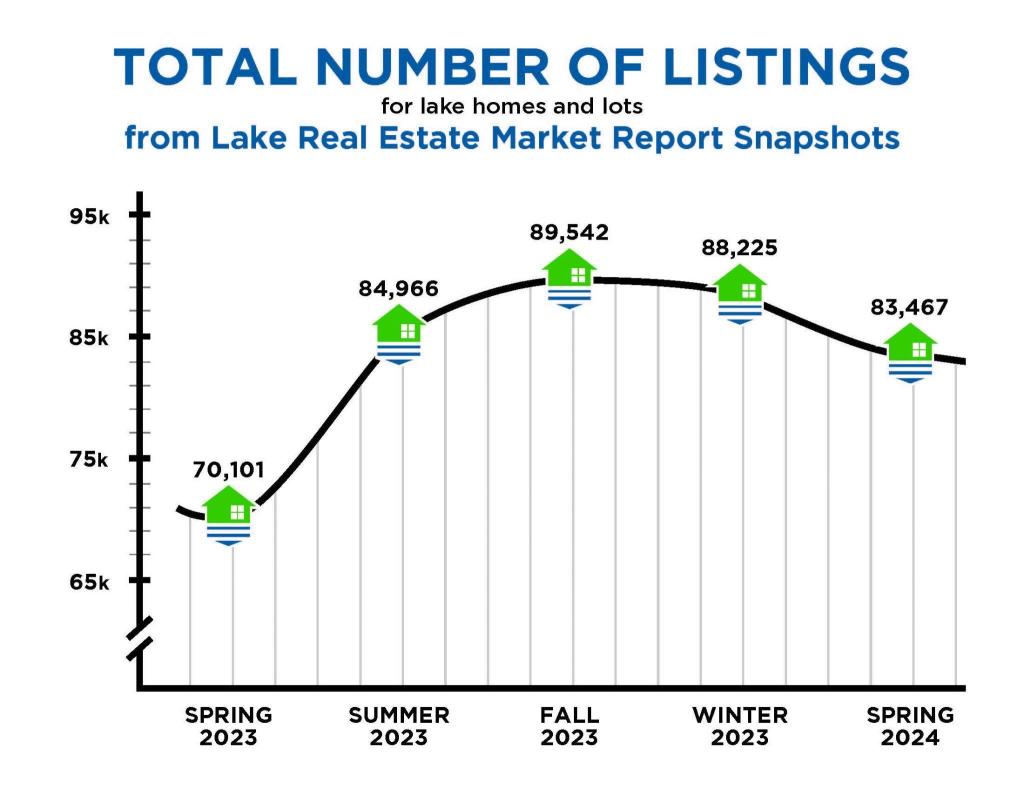
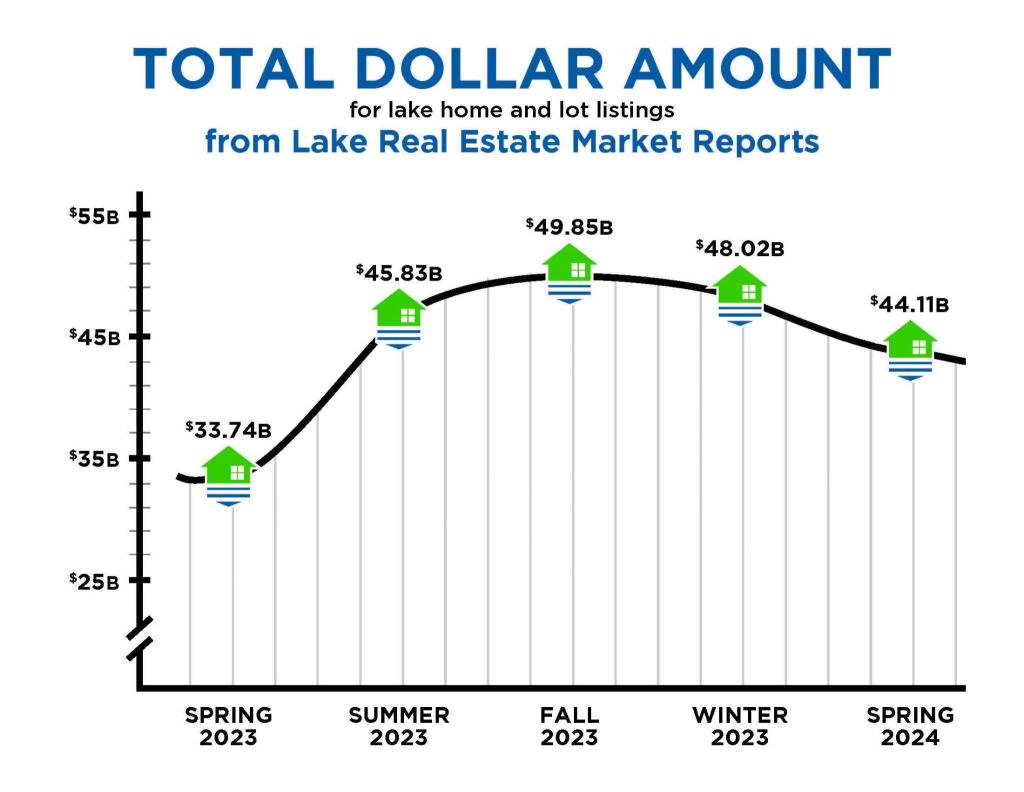
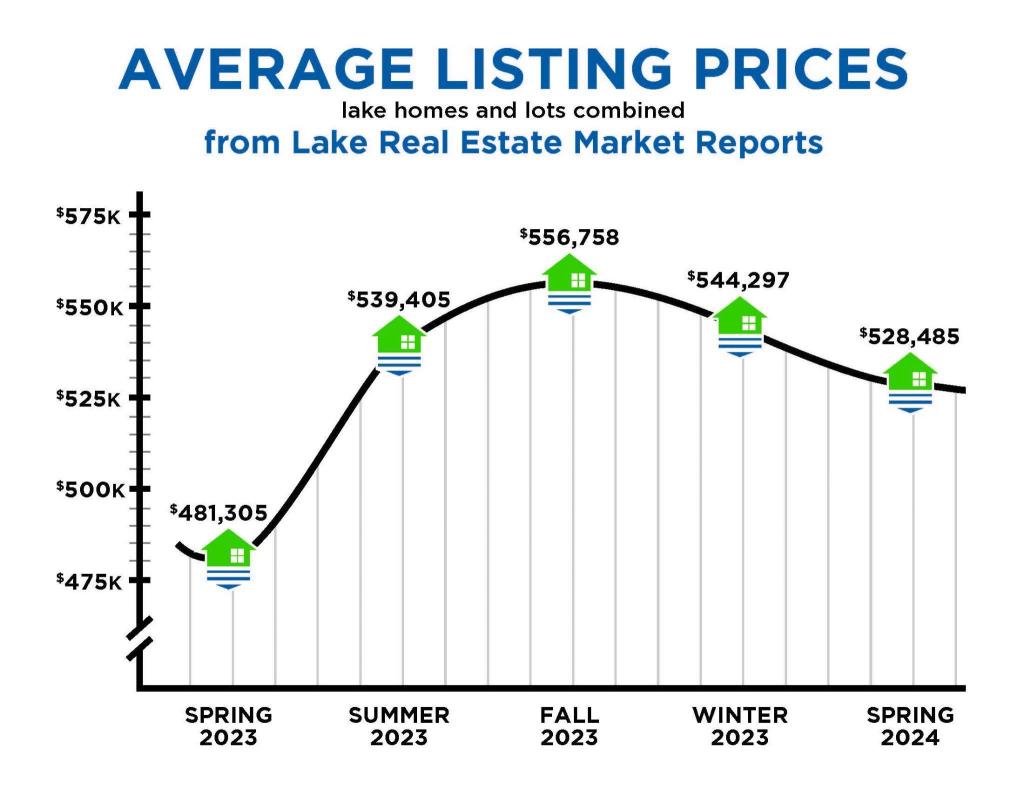
Top 10 States for Lake Property Listings
- Texas – 15,393
- Florida – 9,648
- Tennessee – 5,880
- North Carolina – 4,354
- Georgia – 4,174
- Missouri – 3,677
- Alabama – 3,629
- Minnesota – 3,353
- Michigan – 2,945
- Arkansas – 2,888
Top 5 Most Expensive Lakes for Home Listings (Average Price)
- Lake Butler, FL – Avg. of $4,634,656
- Lake Washington, WA – Avg. of $4,094,885
- Whitefish Lake, MT – Avg. of $3,894,179
- Heron Lagoon, FL – Avg. of $3,853,197
- Flathead Lake, MT – Avg. of $3,541,252
Top 5 Lakes for Number of Home and Lot Listings
- Lake Of The Ozarks, MO – 1,235
- Table Rock Lake, AR/MO – 1,207
- Lewisville Lake, TX – 1,035
- Canyon Lake, TX – 1,014
- Cedar Creek Lake, TX – 1,013
The Spring 2024 Lake Real Estate Market Report shares a summary of data collected from 146 Multiple Listing Services (MLS) areas in the 34 states served by Lake Homes Realty and is, to its knowledge, not available from any other source. Copies of the Spring 2024 Lake Real Estate Market Report are now available to download for free at www.lakehomes.com/report.

